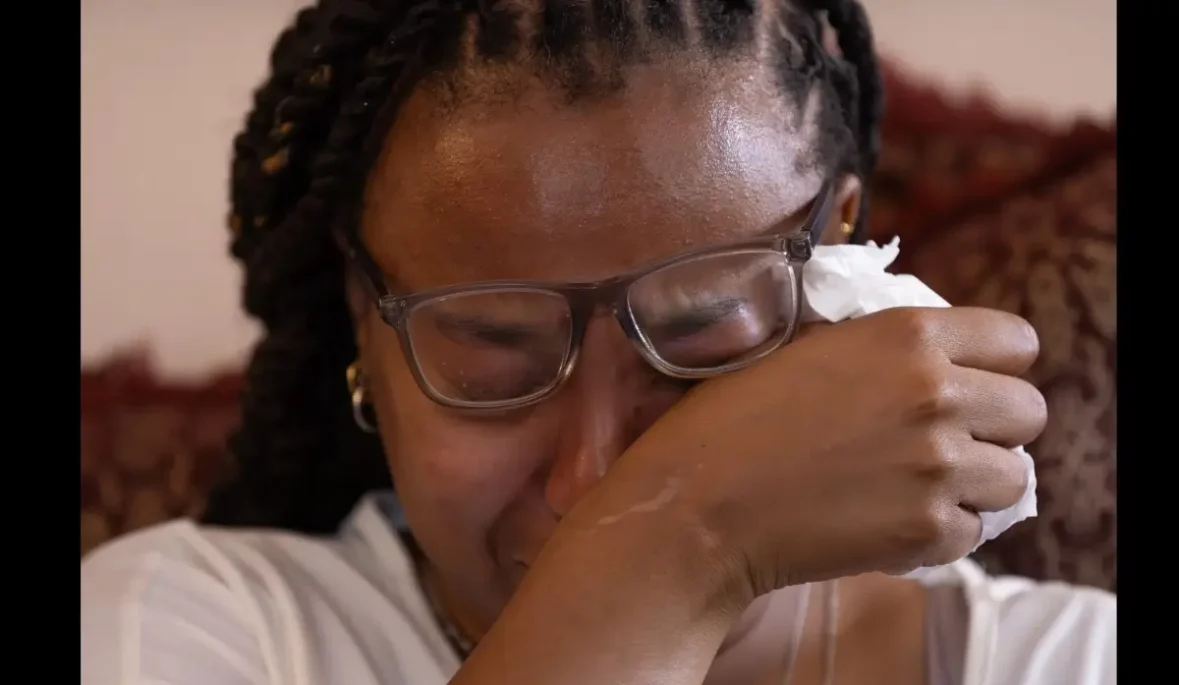A state grand jury in Orangeburg, South Carolina, has declined to indict a Black woman in South Carolina who faced murder charges after losing a baby during childbirth, in a case that has become a flashpoint in the national debate over restrictive state laws governing reproductive rights.
Amari Marsh, now 23, was a junior at South Carolina State University when she went to an Orangeburg area hospital complaining of pain related to her second-trimester pregnancy. After several hours, she left the emergency room, and later that night, the fetus was ejected from her body into the toilet at her off-campus apartment on March 1, 2023, reported the Post and Courier in Charleston.
At a hospital the next day, she was questioned by police, who did not indicate to Marsh that she was being criminally investigated, reported Kaiser Health News. But three months later, she was arrested and charged with murder/homicide by child abuse and spent 22 days in a local detention facility, where she was initially held without bond and faced 20 years to life in prison.

The felony charges stemmed from her failure to remove the baby from the toilet as advised by a 911 dispatcher, according to a sheriff’s department report.
Hospital staffers had told Marsh she was pregnant and that a fetal heartbeat could be detected, the report said. When she lost the baby in the toilet, Marsh said she was “scared,” “freaked out and confused.” After her then-boyfriend called 911, the EMS dispatcher “kept telling me to take the baby out” of the toilet, she recalled. “I couldn’t because I couldn’t even keep myself together.”
Emergency responders who rushed to her apartment detected signs of life and tried to save the infant, a girl, but she died en route to the hospital. Marsh later received the child’s ashes.
An incident report filed by the Orangeburg County Sheriff’s Office on the day she lost the pregnancy noted that in January 2023, Marsh had made an appointment at a Planned Parenthood clinic in Columbia “to take the Plan-C pill, which would possibly cause an abortion to occur.” The report didn’t indicate whether Marsh obtained or took the drug.
In a later interview, Marsh denied going to Planned Parenthood or taking medicine to induce an abortion.
The warrant for her arrest on June 2, 2023, alleged that not moving the infant from the toilet was “a proximate cause of her daughter’s death.” The warrant also listed respiratory complications due to a premature delivery stemming from a maternal chlamydia infection as a cause of death. Marsh said she didn’t know about the infection until after the miscarriage.
Marsh was held without bail until securing a $75,000 bond in June, according to the Post and Courier. Last month, a state grand jury that reviewed the case declined to indict her.
“What was being alleged is not what the evidence showed,” said Marsh’s attorney, Columbia Democratic state Rep. Seth Rose, who insisted there was no evidence that abortion drugs played any part in the death of the fetus. “It’s our position that she lost a child through natural causes,” he said.
South Carolina First Circuit Solicitor David Pascoe, who prosecuted the case, said the case was never being tried as an abortion or reproductive rights case but over the question of whether Marsh failed to render aid. He said he respected the grand jury’s decision that there was no probable cause to proceed with a criminal trial.
The case drew the attention of anti-abortion groups around the country, with some posting Marsh’s mugshot alongside blog posts accusing her of infanticide.
Marsh’s actions during her pregnancy loss were supported by many reproductive health advocates, locally and nationally, including the Women’s Rights & Empowerment Network (WREN) in South Carolina, which partnered with Pregnancy Justice to organize a letter of support from advocates who oppose “the criminalization of pregnancy outcomes.”
In a blog post on Sept. 11, WREN CEO Amalia Luxardo said Marsh’s case “highlights advocates’ growing push for improved maternal health support, particularly for women of color, rather than punitive measures.”
In South Carolina, Black women are 67% more likely than white women to experience pregnancy-related death, and nationally, Black women are about three times as likely as white women to die during pregnancy, WREN noted.
“There’s no rulebook for pregnancy loss, and … Amari did nothing wrong and never should have been charged,” said Pregnancy Justice Legal Director Karen Thompson. “The state’s justification of its charge — that Amari waited a whole 10 minutes to call 911 — underscores the fact that being pregnant in America is in and of itself a reason for suspicion, especially if you’re Black.”
The case shows how pregnancy loss is being criminalized around the country, said U.S. Rep James Clyburn, a Democrat and graduate of South Carolina State University whose congressional district includes Orangeburg.
“This is not a slogan when we talk about this being an ‘election about the restoration of our freedoms,’” Clyburn said.
Marsh’s ordeal echoes a similar lost pregnancy case last year in Ohio, where a grand jury ruled in favor of a Black woman who miscarried her child in a toilet at home and was later charged with abuse of a corpse.
Vice President Kamala Harris has been campaigning on reproductive rights reform, including a push to reinstate the protections of Roe vs. Wade, overturned by the U.S. Supreme Court in 2022, which prohibited states from banning abortions before fetal viability, generally considered around 20 weeks.
Harris has blamed former President Donald Trump, who appointed three conservative Supreme Court justices who voted to overturn the longstanding legal precedent — and who now boasts “I was able to kill Roe v. Wade” — for the medical and legal peril that many pregnant women now find themselves in.
“You want to talk about this is what people wanted? Pregnant women who want to carry a pregnancy to term, suffering from a miscarriage, being denied care in an emergency room because health care providers are afraid they might go to jail and she’s bleeding out in a car in the parking lot?” Harris during her presidential debate with Trump.
“And now women are dying,” Harris said last week in Atlanta, regarding the deaths of two Georgia women from medical complications after taking abortion pills in a state that bans abortion after six weeks,” reported by ProPublica. “These are the consequences of Donald Trump’s actions.”
“I’m relieved that my case is over, but they will never fully understand what they put me through,” said Marsh. “They interrogated me, charged me, arrested me, disrupted my education and turned my whole life upside down. While facing a murder charge and the possibility of decades in prison, I still had to process my pregnancy loss. I’m now working to rebuild my life through counseling, and I’m back in school.”
A biology major, Marsh said she still intends to become a doctor. She has moved back in with her parents and is taking classes at a local community college, reported KFF Health News.
“Through all of this, I found my strength,” said Marsh. “I found my voice. I want to help other young women that are in my position now and will be in the future,” she said.


